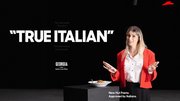Article
Reduce turnover by boosting benefits
Quick-service restaurant companies are reducing employee turnover by increasing benefits plans.

February 21, 2007
It's fair to argue that the biggest problem facing quick-service operators isn't government intervention or getting and keeping customers. It's hiring and retaining employees.
Multiple sources set the United State's restaurant industry's annual turnover average near 130 percent, a shocking number few operators seem able to reduce. When it costs restaurants an average $3,000 to replace a single hourly employee, the bottom line suffers, morale takes a hit and ultimately customers suffer.
Some companies, however, are enjoying strong retention levels by providing both hourly employees and store-level managers increased benefits. Where promises of higher pay often keeps peripatetic employees jumping from one job to the next, some operators say offering health and dental insurance, 401k opportunities and other less tangible support keeps them onboard longer. To boot, some say their employees are happier, perform much better in their roles and, in the end, serve guests better.
At Pollo Campero, which has 21 units in the Western United States, every employee is eligible for health insurance (80 percent of which is paid by the company) and dental insurance (100 percent is paid). They are also eligible for the company's creditunion and can participate in its 401k plan. As if that wasn't enough, the company negotiates special rates for employees using public buses to get to work, and deals at local health clubs.
If one looks only at the cost, the investment appears high, said Frank Mitchell, vice president of human resources and governmental affairs for Pollo Campero in Los Angeles.
"But if you look closely, it's not as bad as it seems because that investment repays us in terms of lower turnover," Mitchell said. "Our turnover rate is 34 percent: nearly 100 points lower than the national average. If we're not spending money replacing people, we can put money into other things like benefits."
Pollo Campero's employee retention is so strong that 80 percent of its managers began as hourly employees who were promoted from within. Mitchell said the company's culture builds pride among the staff to the point that a job at the chicken chain isn't just a stop along the way to a college degree, it's the first step on a career path.
"They're proud of working for the company and they want the customers to feel it too," he said. "They know we care about them. So when someone else comes along with an offer of 50 cents or a dollar more an hour, it's not much of a lure to them."
Mike Schneider, co-founder of The Loop Pizza Grill, said throughout the company's 26-year history, he's worked to maintain a family atmosphere by meeting employees' needs at every level. Happy workers please customers, so in addition to traditional insurance benefits, The Loop has sought to help staffers on spiritual and emotional levels as well.
Two Loop programs, Corporate Care Works and a Chaplaincy Program, were created several years ago to provide counseling and coaching for employees dealing with conflicts at work and at home. The programs help with substance abuse, stress reduction and helping workers financially if necessary. Both programs include 24-hour hotlines employees can use to call licensed counselors for immediate assistance.
The goals of those programs, Schneider said, is to boost productivity, reduce absenteeism and retain valuable employees.
| From Podcast Grill (story continues below)... | ||
NRA 2007 Restaurant Industry Forecast  The National Restaurant Association profiles the restaurant industry as it heads for its 16th consecutive year of real growth. Sales expected to reach $537 billion at a record 935,000 locations in '07. Don't miss out on this opportunity to tune into the future of the restaurant industry for 2007. The National Restaurant Association profiles the restaurant industry as it heads for its 16th consecutive year of real growth. Sales expected to reach $537 billion at a record 935,000 locations in '07. Don't miss out on this opportunity to tune into the future of the restaurant industry for 2007. | This episode sponsored by  The restaurant industry's Smart Self-service companyListen to more episodes www.podcastgrill.com The restaurant industry's Smart Self-service companyListen to more episodes www.podcastgrill.com | |
| If you cannot hear the audio please click hereto download the latest media player from Microsoft. | ||
"For us, the motivation was more about caring for the people who chose to work for us," said Schneider, whose 30-unit company is based in Jacksonville, Fla. The company even provides tuition reimbursements for good grades. "We've always tried to find different ways to meet their needs. And on a personal level, it's very much a part of who we are as a company."
In 2006, Loop manager Joanne Wells celebrated her 25th anniversary with the company and received a nine-day paid vacation to Italy as a reward. Wells admits her love of restaurant work has played a large role in her staying so long, but she said without the Loop's employee-centered culture, she might have finished the computer science degree she was working toward when she first was hired in 1978.
"They've always been fair, good people to work for," she said. "They care about their employees, and that turns into employees who stay longer."
Ensuring loyalty through insurance
Research says 46 million American citizens don't have health insurance, even though the vast majority of that group makes $30,000 annually. The fact is not everyone who could participate does, said Susan Nicolai, director of marketing for Planned Administrators, which administers the EssentialCare insurance plan.
Low participation happens for many reasons, she said. Some employees believe they can't afford it, while others — especially the young, healthy and single crowd — don't think they need it. Still others simply don't understand its value since some programs offer coverage for unlikely problems such as long-term disability or catastrophic illnesses.
"What we focus on with our programs are basic daily needs: office visits or copays on drugs, and coverage that will help them once or twice a year," Nicolai said. "We try to provide benefits that will be used and valued by the employees. Most people (in quick-service restaurants) don't have catastrophic claims."
Nicolai said employers often don't offer insurance not because they don't want to, but because they fear the burden of serving as the plan administrator. Many insurance companies serve as the plan administrator, however, and set up payroll deduction models to simplify bookkeeping.
"We try to make it almost effortless for the owner operator," she said. "We know they're not in the business of health insurance, they're trying to run a restaurant."
Despite Pollo Campero's payment of 80 percent of each employee's health premium, only about half its employees participate in the plan. Mitchell also thinks some employees don't think they need it, but he said as non-participants see others accept the plan, they sometimes change their minds. "When they hear that others got it and enjoy it, they're more encouraged to try it themselves."
In 2005, only 20 percent of Burgerville's 1,400 employees participated in the company's health insurance plan. The $100-per-month premium and the $200 deductible, many employees said, kept them away, and that concerned the 39-unit company's owners.
Last year the Vancouver, Wash.-based chain bit the bullet and doubled its health costs to help employees, even part-timers, get insurance. According to a report in The Oregonian, Burgerville pays 95 percent of the cost, which leaves employees to pay $15 a month. The new policy has no deductible.
Not surprisingly, enrollment in the revamped plan rose to 86 percent, and officials say nearly all who didn't participate are covered by a parent's or spouse's insurance.
Why the sacrifice?
To reduce turnover, said Burgerville chief cultural officer, Jack Graves.
"We think we can reduce turnover, and thus training and hiring costs," he told The Oregonian. "We think we can increase productivity, and a higher-caliber employee will be attracted to us."
Research shows, Nicolai said, that employees tend to participate in insurance programs when employers make even modest contributions to help. Put simply, the gesture demonstrates ownership's loyalty to the rank and file. But even when employers simply can't afford to help, "supporting the program philosophically" helps, she added.
Knowing health coverage is offered by so few restaurant companies gives Mitchell the enjoyment of watching a prospective employee's face light up when he learns he can get it at Pollo Campero.
"When they hear that, I think it's shock more than anything else," he said. "Sometimes they ask me again, 'Let me make sure I heard you correctly. Maybe I misunderstood.' It's nice to tell them they didn't."
 ChatGPT
ChatGPT Grok
Grok Perplexity
Perplexity Claude
Claude








